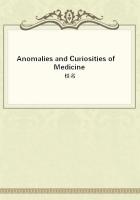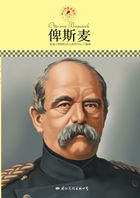"Don't be stupid, sir," said Gertrude impatiently. "I am going this way."Max, apparently understanding, rushed after her, passed her, and disappeared in a cloud of dust raised by his effort to check himself when he had left her far enough behind. When he came back she kissed his nose, and ran a race with him until she too was panting, and had to stand still to recover her breath, whilst he bounded about, barking ferociously. She had not for many years enjoyed such a frolic, and the thought of this presently brought tears to her eyes. Rather peevishly she bade Max be quiet, walked slowly to cool herself, and put up her sunshade to avert freckles.
The sun was now at the meridian. On a slope to Gertrude's right hand, Sallust's House, with its cinnamon-colored walls and yellow frieze, gave a foreign air to the otherwise very English landscape. She passed by without remembering who lived there.
Further down, on some waste land separated from the road by a dry ditch and a low mud wall, a cluster of hemlocks, nearly six feet high, poisoned the air with their odor. She crossed the ditch, took a pair of gardening gloves from her plaited straw hand-basket, and busied herself with the hemlock leaves, pulling the tender ones, separating them from the stalk, and filling the basket with the web. She forgot Max until an impression of dead silence, as if the earth had stopped, caused her to look round in vague dread. Trefusis, with his hand abandoned to the dog, who was trying how much of it he could cram into his mouth, was standing within a few yards of her, watching her intently.
Gertrude turned pale, and came out hastily from among the bushes.
Then she had a strange sensation as if something had happened high above her head. There was a threatening growl, a commanding exclamation, and an unaccountable pause, at the expiration of which she found herself supine on the sward, with her parasol between her eyes and the sun. A sudden scoop of Max's wet warm tongue in her right ear startled her into activity. She sat up, and saw Trefusis on his knees at her side holding the parasol with an unconcerned expression, whilst Max was snuffing at her in restless anxiety opposite.
"I must go home," she said. "I must go home instantly.""Not at all," said Trefusis, soothingly. "They have just sent word to say that everything is settled satisfactorily and that you need not come.""Have they?" she said faintly. Then she lay down again, and it seemed to her that a very long time elapsed. Suddenly recollecting that Trefusis had supported her gently with his hand to prevent her falling back too rudely, she rose again, and this time got upon her feet with his help.
"I must go home," she said again. "It is a matter of life or death.""No, no," he said softly. "It is all right. You may depend on me."She looked at him earnestly. He had taken her hand to steady her, for she was swaying a little. "Are you sure," she said, grasping his arm. "Are you quite sure?""Absolutely certain. You know I am always right, do you not?""Yes, oh, yes; you have always been true to me. You--" Here her senses came back with a rush. Dropping his hand as if it had become red hot, she said sharply, "What are you talking about?""I don't know," he said, resuming his indifferent manner with a laugh. "Are you better? Let me drive you to the Beeches. My stable is within a stone's throw; I can get a trap out in ten minutes.""No, thank you," said Gertrude haughtily. "I do not wish to drive." She paused, and added in some bewilderment, "What has happened?""You fainted, and--"
"I did not faint," said Gertrude indignantly. "I never fainted in my life.""Yes, you did."
"Pardon me, Mr. Trefusis. I did not."
"You shall judge for yourself. I was coming through this field when I saw you gathering hemlock. Hemlock is interesting on account of Socrates, and you were interesting as a young lady gathering poison. So I stopped to look on. Presently you came out from among the bushes as if you had seen a snake there. Then you fell into my arms--which led me to suppose that you had fainted--and Max, concluding that it was all my fault, nearly sprang at my throat. You were overpowered by the scent of the water-hemlock, which you must have been inhaling for ten minutes or more.""I did not know that there was any danger," said Gertrude, crestfallen. "I felt very tired when I came to. That was why Ilay so long the second time. I really could not help it.""You did not lie very long."
"Not when I first fell; that was only a few seconds, I know. But I must have lain there nearly ten minutes after I recovered.""You were nearly a minute insensible when you first fell, and when you recovered you only rested for about one second. After that you raved, and I invented suitable answers until you suddenly asked me what I was talking about."Gertrude reddened a little as the possibility of her having raved indiscreetly occurred to her. "It was very silly of me to faint,"she said.
"You could not help it; you are only human. I shall walk with you to the Beeches.""Thank you; I will not trouble you," she said quickly.
He shook his head. "I do not know how long the effect of that abominable water-weed may last," he said, "and I dare not leave you to walk alone. If you prefer it I can send you in a trap with my gardener, but I had rather accompany you myself.""You are giving yourself a great deal of unnecessary trouble. Iwill walk. I am quite well again and need no assistance."They started without another word. Gertrude had to concentrate all her energy to conceal from him that she was giddy. Numbness and lassitude crept upon her, and she was beginning to hope that she was only dreaming it all when he roused her by saying, "Take my arm.""No, thank you."
"Do not be so senselessly obstinate. You will have to lean on the hedge for support if you refuse my help. I am sorry I did not insist on getting the trap."Gertrude had not been spoken to in this tone since her childhood.















